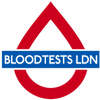Full London Thyroid Check with Reverse T3 In London
THTW
 Thank you - 1.0% of your order total will be donated to Our Charity of the Month
Thank you - 1.0% of your order total will be donated to Our Charity of the Month
Order our Full London Thyroid Check Plus Reverse T3 Profile with 12 Biomarkers Online & Attend in London. Results in 17 Days Guaranteed.
Our Full London Thyroid Check takes a detailed analysis into your thyroid function including vitamins as well as thyroid nutrition for a deep investigation into overall thyroid health.
Is this blood test for you?
Do you have symptoms such as fatigue, low energy, weight gain. If you want a deep insight into your thyroid health then this is a great option for you.This blood test includes: TSH, T4, free T3, free T4, Thyroid peroxidase antibodies, Thyroglobulin antibodies, Vitamin D, Vitamin B12, Ferritin, Folate and C reactive Protein + Reverse T3
We are proud to donate charitable donations to the Thyroid UK Charity and the Thyroid Patient Advocacy service, which are both fantastic resources for those that are interested in their thyroid function.
Blood Tests Explained
Please see below for a breakdown of test information, click each tab to find out more.
The TSH (thyroid stimulating hormone) is a hormone manufactured in the pituitary gland (found in the brain). It s role is to stimulate thyroxine production in the thyroid gland (found in the neck). A high level within a health screening is associated with an underactive thyroid gland (hypothyroidism) and a low level is found if the thyroid gland is over-active (hyperthyroidism). Changes in the TSH level alone can indicate underlying thyroid problems even if the thyroxine levels are normal.
FT4 (free thyroxine) is the active form of thyroxine, released from the thyroid gland in the neck. Its role is to control metabolism - release of energy from all cells of the body. A lack of thyroxine leads to, for example, tiredness and weight gain, whereas an excess will lead to weight loss, rapid heart rate and anxiety. It is generally believed that this level (FT4) is the most reliable indicator of thyroid status - ie whether the gland is over-active (hyperthyroidism) or underactive (hypothyroidism).
(Free Triiodothyronine) - This is one of two hormones produced by the thyroid gland. This measures the level of T3 that is 'free' and is able to regulate metabolism.
This is an enzyme found in the thyroid gland mostly. This allows the production of thyroid hormones.
Vitamin D is an important vitamin, essential for good bone health. It is manufactured in the skin through sunlight exposure and is found in several foods. Prolonged Vitamin D lack can cause osteomalacia, a disease which causes severe structural deformities to the skeleton. Lower level Vitamin D deficiency can lead to a number of non-specific symptoms, including chronic pain, weak bones, frequent infections depression and fatigue. It has been estimated that between 50-70% of people living in the northern Europe (where daylight length reduces your chances of receiving adequate sunlight in the winter) are deficient in this vitamin by March each year which is why health screening for this important vitamin is essential.
This is an important vitamin, essential for the normal functioning of many body processes. Deficiency can lead to anaemia (poor quality red blood cells) and neurological (nerve) disorders. It is most abundant in meat products so vegetarians are more vulnerable to deficiency of this vitamin. Pernicious anaemia develops if uptake of vitamin B12 into the blood from the gut is absent or severely impaired, and even if a diet rich in the vitamin is taken, deficiency will occur if this disease is present. Recent evidence suggests that mild deficiency is probably more common than previously thought. Mild deficiency may explain the presence of fatigue and a host of other limiting symptoms
Weight loss with increased appetite
Warm/clammy skin
Shortness/loss of breath
Feeling warm and sweating excessively
Feeling hyperactive
Rapid heartbeat
Insomnia
Osteoporosis
Raised libido
Irregular bowel movements
Diarrhoea
Thin hair
Fertility problems
Irritability
Fatigue
Feeling cold constantly
Weight gain and/or difficulty losing weight
Brain fog
Issues with Breathlessness
Low basal temperature
Insomnia
Hair loss
Raised cholesterol
Low basal temperature
Dry hair and skin
Loss of libido
Constipation
Depression
Mood swings
Fertility problems












